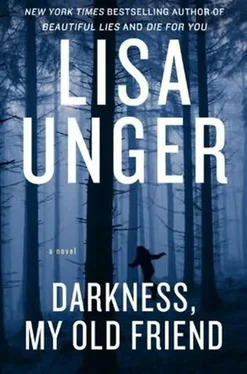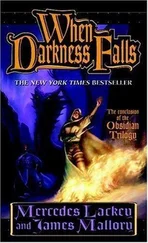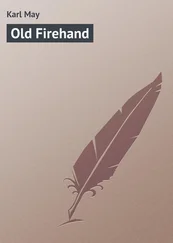“Did you see your mother then?”
“No,” he said. “I just went to my room and went to sleep.”
“Why did you come home?”
Michael was staring at Jones. Some people might have found the young man’s gaze menacing. But Jones could sense its vacancy. Michael was looking in, not out.
“I just did that sometimes, you know,” he said. He ran his hand through his hair. “Wanted to be in my own bed, you know what I mean?”
“Of course.”
Jones had no idea what he meant. As a kid he’d slept away from home as often as possible. He jumped at any opportunity to spend time away from his mother, from her need and criticism, the constant litany of her complaints and worries. He didn’t recall Ricky ever coming home from a night away, either, or making weepy calls from camp, like so many kids did.
“Do you remember anything about that night?” he asked. “Things you didn’t want to say then?”
Michael picked up a snow globe that held a New York City scene, turned it in his hand. After a few moments, it became obvious that he wasn’t going to answer. Jones cleared his throat. And Michael looked at him, startled, as though he’d forgotten that Jones was there.
“I noticed that your desire to reopen your mother’s case coincides with your father’s passing,” Jones said eventually. “I just wondered about that.”
Holt still stayed quiet, kept turning that snow globe.
“Did you find something here?” Jones asked.
Finally Michael seemed to come back. “I heard voices that night. They were fighting, I think.”
“Did you leave your room to investigate?” Jones asked.
“No. I never did. They weren’t happy with each other. They had a terrible marriage, always fighting.”
“What did they fight about?”
Holt blew out a breath. “I don’t know. What do married people argue about? Money-she spent too much, he didn’t make enough. He was always gone, leaving her alone with us. Like I said, they just weren’t happy together. She didn’t love him. All those arguments, whatever they were about, were about that, I think.”
Holt tapped out a staccato rhythm with his right foot. Jones kept quiet.
“Coming back here,” said Holt, “seeing this place, looking at her things-I just want to know what happened to my mother. We’ve hired people over the years. No one has ever found a trace of her. I feel like if there are answers, they’re here in The Hollows.”
“That’s why you hired Ray Muldune and Eloise Montgomery?”
Holt leaned forward in that too-small chair. His face had taken on the open expression again, the normal one.
“The Hollows PD kind of blew me off. Eloise knew my mother, used to baby-sit for me and my sister. She’s got this ability, supposedly.” He lifted his shoulders, looked out the window again. “She tried to talk me out of it. Did they tell you that? She said that sometimes people don’t like what they find when they start asking old questions. She said maybe I should just consider letting my mother go. But I insisted, and they agreed to take the case. Well, Muldune did. But they don’t seem to be getting anywhere, either.”
“Is that why you were digging back in the woods?”
Michael Holt turned those eyes on Jones. Jones couldn’t say what he saw there now, but he didn’t like it.
“Where did you hear that?” Michael asked. His voice was flat.
“There aren’t too many secrets in The Hollows,” said Jones. He kept his answer purposely vague, not wanting trouble for the girl. “And that’s private land.”
“It’s my work to study and record the mines in this area.” Holt recounted the legend that he had already shared with Bethany Graves. Again, even in Holt’s retelling, it didn’t ring true. And Jones had not been able to find anything about it on the Internet.
When Holt was done, Jones asked, “Is there a mine where you were digging? I didn’t see a shaft head or any other evidence of a tunnel.”
A slow, easy blink. He could see Holt processing the fact that Jones had visited the dig site. “I didn’t find anything,” he said.
“But why there? I’m curious.”
Michael shifted in his seat. “I don’t know. Just a feeling.”
Jones nodded. “I get those, too. So your work-you’re a historian, a tour guide?”
Michael Holt picked at a fleck of something on his pants.
“I guess I’m both of those things,” he said. “I’m trying to record a fading history. The earth, soil, is like a slow-moving liquid. It falls and flows like water; it covers things and washes them away, buries them deep. I’m trying to photograph what I can, write down the lore and legend, make a record. I have a website. I’m working on a book.”
Jones offered a slow, considering nod. The guy was in his late thirties, unmarried, crawling around in mines, still looking for his lost mother.
“So there’s a living in that?” That’s the kind of comment that would have drawn a frown from his wife. Invasive, belligerent, that’s what she’d say. You’re not a cop anymore, she’d remind him.
“I get by,” Holt said vaguely.
I can see that , Jones thought but didn’t say. He bet if he started digging into the guy’s financials, employment history, credit records, he’d find that Michael Holt didn’t have a penny to his name. This house and whatever he had inherited from his father were probably the total of his assets.
“My father and I were estranged,” Holt said. “I’ve always believed he was hiding something from us about my mother’s disappearance. Now that he’s gone, I want to know what it was.”
Jones opted for silence again. People didn’t like silence. They rushed to fill it.
“I don’t think she would have run off on us,” Michael went on. “Maybe him. But not us. She always told me that I was the center of her world, that she couldn’t live without me. And for her never to contact us in all these years? It’s not right. She wouldn’t. She couldn’t have left me.”
Jones heard the pitch of petulant rage, the anger of a young boy. It was right beneath the surface, eating this guy alive. Jones found himself remembering Michael’s lurking form back in 1987, how he hung at the top of the stairs. He was big, powerful, even then.
He didn’t ask, wouldn’t have asked him. But Holt said, “I think she’s dead.”
“Do you think your father killed her? Is that why you’re back? Now that he’s dead, you want to answer that question?”
Holt covered his eyes and shook his head. He didn’t reply, and Jones regretted asking. The words were harsh. Even if Holt was toying with the idea himself, he wasn’t necessarily willing to say it out loud. Jones had a feeling that the conversation was going to come to an abrupt end. Not being a cop, he’d have no right to press. When Michael Holt looked up again, all Jones saw was a desperately sad young man.
“I’m not feeling well, Mr. Cooper. If there’s nothing else, you can see yourself out.”
Holt got up then and left the room. A minute later Jones heard more banging from the kitchen. He saw himself out.
Once in the car, he called Chuck.
“It’s my advice that you get someone out there to start digging. I’ll call Bill Grove and get you permission, no problem.”
He heard Chuck shuffling papers on the other side. “Really? What do you think is out there?”
“No idea.” That was a lie. He had an idea.
Chuck was eating something now, chewing unapologetically into the phone. “What are you thinking, Jones?”
Between whatever Michael Holt was hiding (and he was hiding something), Ray Muldune’s obsessive nature (they went way back), and Eloise Montgomery’s visions, this thing was not going away. Jones told Chuck as much. What Jones didn’t say was that he didn’t want it to go away. He wanted to know what had happened to Marla Holt. He wanted to know what was back in the Hollows Wood.
Читать дальше












